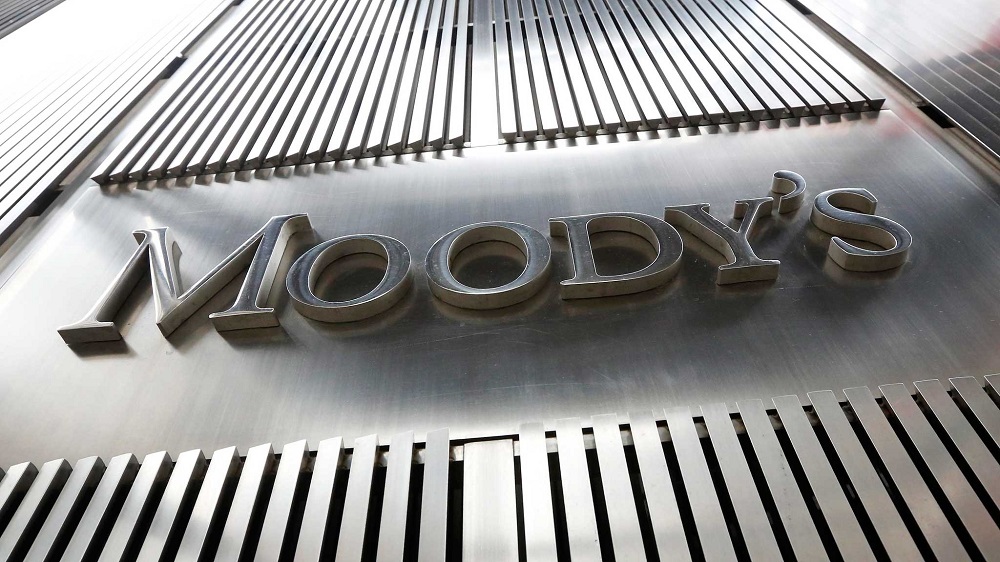Moody’s Investors Service (Moody’s) has upgraded the long-term foreign currency deposit ratings of 29 banks and the long-term foreign-currency issuer rating of one bank across five countries, which are Bahrain, Oman, Jordan, Pakistan, and Turkey.
Moody’s has also downgraded the long-term foreign currency Counterparty Risk Rating of one bank in Oman.
The rating actions are driven by changes in the local currency (LC) and foreign currency (FC) country ceilings applied to the jurisdictions of the banks following the publication of Moody’s updated Country Ceilings Methodology on December 7, 2020.
ALSO READ
Moody’s Investor Service Assigns Corporate Family Rating ‘B3’ to WAPDA
The rating actions cover:
- Bahrain Islamic Bank B.S.C.
- National Bank of Bahrain BSC
- BBK B.S.C.
- Bank Muscat SAOG
- HSBC Bank Oman SAOG (HBON)
- National Bank of Oman SAOG
- Oman Arab Bank S.A.O.G
- Bank Dhofar SAOG
- Sohar International Bank SAOG
- Bank Nizwa SAOG
- Arab Bank PLC
- Cairo Amman Bank (CAB)
- Housing Bank for Trade and Finance (The) (HBTF)
- Allied Bank Limited
- Habib Bank Ltd
- MCB Bank Limited
- National Bank of Pakistan
- United Bank Ltd
- T.C. Ziraat Bankasi A.S.
- Turkiye Is Bankasi A.S.
- Turkiye Garanti Bankasi A.S.
- Akbank T.A.S.
- Turkiye Halk Bankasi A.S.
- Yapi ve Kredi Bankasi A.S.
- Turkiye Vakiflar Bankasi T.A.O.
- QNB Finansbank A.S.
- Denizbank A.S.
- Turk Ekonomi Bankasi A.S.
- HSBC Bank A.S. (Turkey)
- Alternatifbank A.S.
All other ratings and assessments of the banks are unaffected by actions.
The rating actions on 30 banks in the Middle East, Pakistan, and Turkey are driven by changes in country ceilings under Moody’s updated country ceilings methodology.
Country ceilings typically indicate the highest rating level that would generally be assigned to the financially strongest obligations of issuers domiciled in a country, absent exceptional considerations such as external support from outside the country.
The updated ceilings methodology has unified deposit ceilings with the typically higher debt ceilings, whereby LC and FC country ceilings are no longer distinguished between deposit and debt ceilings. These changes reflect Moody’s view that the risks that affect access to bank deposits are not materially different from those that affect the ability of banks and non-banks to service their debt obligations.
ALSO READ
Moody’s Changes Pakistan’s Outlook from Negative to Stable
As a result of the methodology change, FC ceilings as applied to FC deposits were raised in Bahrain, Oman, Jordan, Pakistan, and Turkey, resulting in upgrades of long-term FC deposits of 29 banks and the long-term FC issuer rating of one bank.
At the same time, FC ceilings applicable to debt obligations were lowered in Oman, resulting in the downgrade of the long-term FC Counterparty Risk Rating of HBON.
Moody’s has removed separate offshore FC ceilings in Bahrain. The offshore business model has faced significant challenges in recent years globally, in particular related to regulations surrounding anti-money laundering and tax evasion, eroding in Moody’s view the distinctions that historically justified separate, higher ceilings for offshore centers.
However, the ratings of Gulf International Bank BSC (GIB) are unaffected by the change in the refreshed FC country ceilings for Bahrain. This reflects the fact that the bank’s support provider is the Government of Saudi Arabia (A1 negative) where GIB also has most of its assets with minimal exposure in Bahrain itself.
The outlooks on the long-term FC deposit ratings for 24 of the 30 banks affected by today’s rating actions were maintained. Also, the outlook on the long-term FC issuer rating for Bahrain Islamic Bank B.S.C. was maintained.
At the same time, Moody’s has assigned a stable outlook to the long-term FC deposit ratings of five Pakistani banks, i.e., Allied Bank Limited, Habib Bank Ltd., MCB Bank Limited, National Bank of Pakistan, and United Bank Ltd.
Upward pressure on Pakistani banks’ long-term deposit ratings can result from improvements in the operating environment and the sovereign’s credit risk profile, combined with improvements in the bank’s solvency metrics and specifically their profitability, asset quality, and capital metrics.
ALSO READ
Pakistan to Face Additional Hurdles in Increasing Tax Collection: Moody’s
Downward pressure on Pakistani banks’ long-term deposit ratings would develop following a downgrade of the sovereign rating, reflecting the high interlinks between the banks’ credit profile and that of the government. Downward pressure on banks’ BCAs could also develop from a greater-than-expected deterioration in operating conditions because of the spread of the pandemic, weakening the banks’ asset quality, profitability, and capital metrics.


























